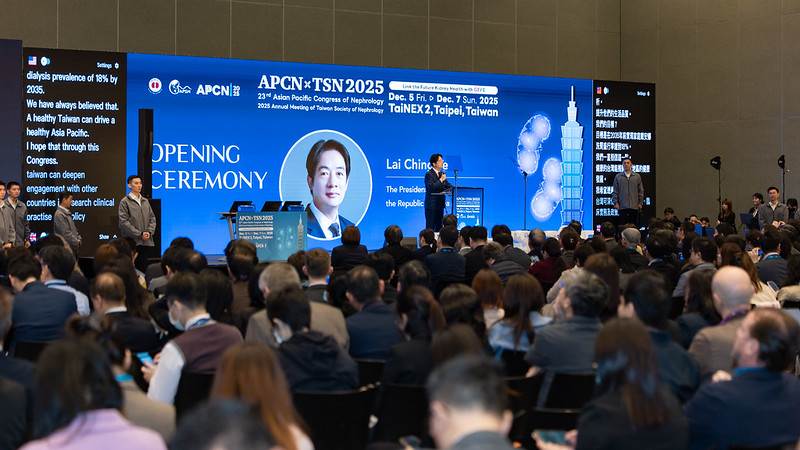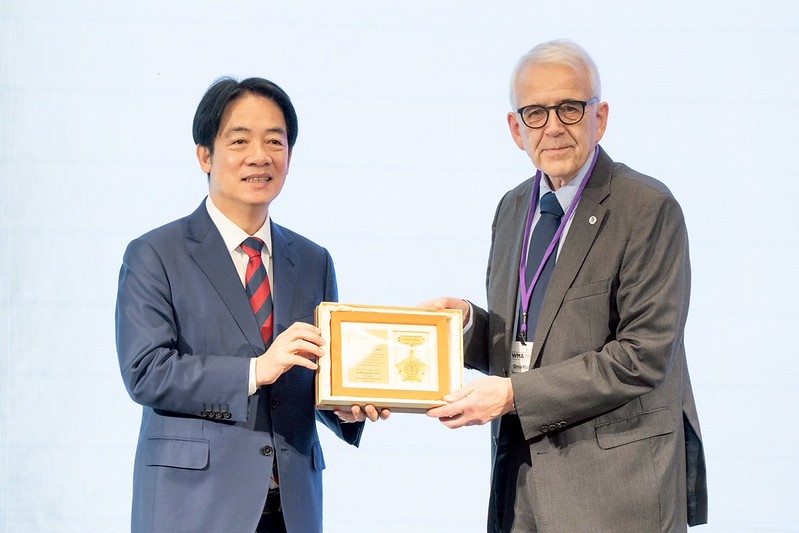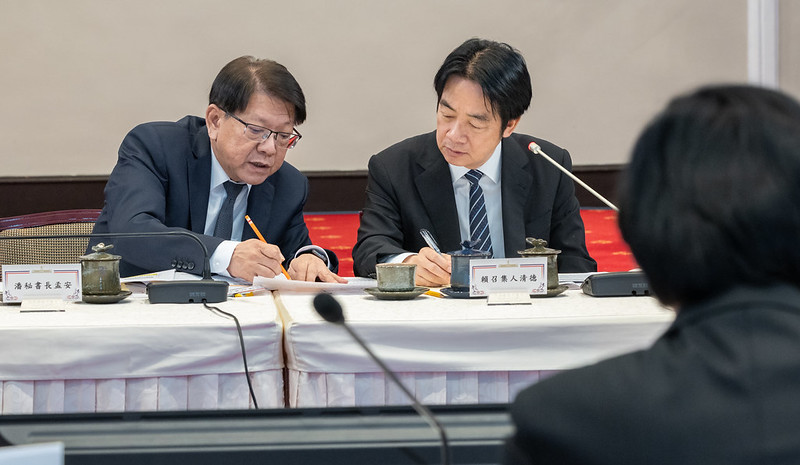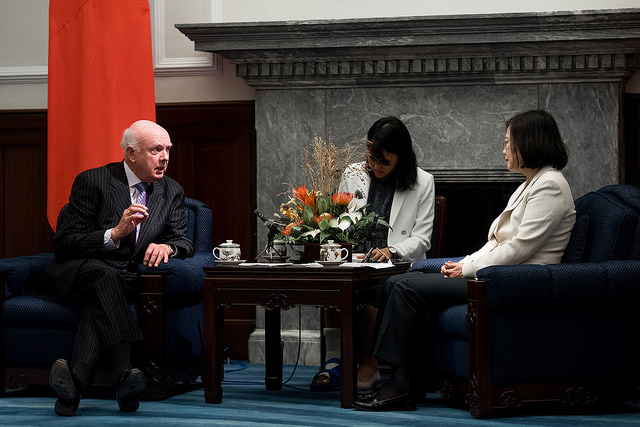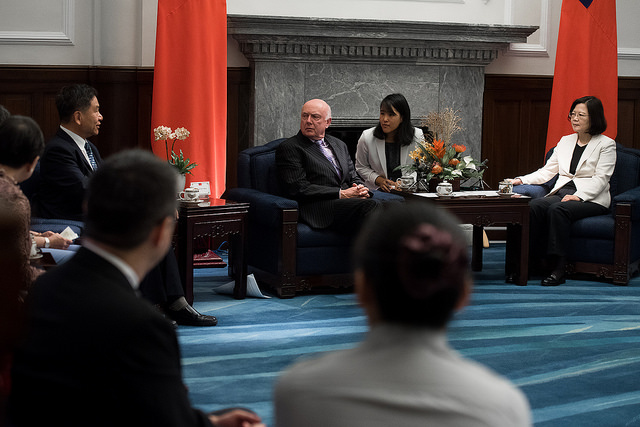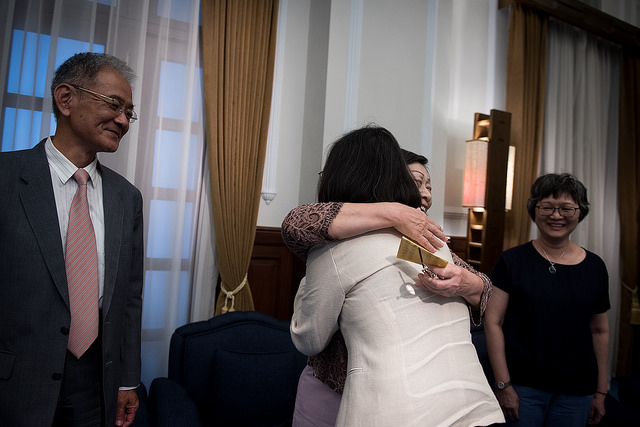News & activities
 News releases
News releases
On the morning of August 25, President Tsai Ing-wen met with the chair of Alzheimer's Disease International, Glenn Rees, and representatives from the Taiwan Alzheimer Disease Association. The president stated that by the end of the year, Taiwan will draft new dementia policy guidelines and stressed that the government has already accelerated the promotion of a dementia prevention and care policy. Taiwan will fully support the Global Plan of Action on the Public Health Response to Dementia of the World Health Organization (WHO) and create the best possible dementia care system, she stated.
In her remarks, President Tsai mentioned that the WHO passed the Global Plan of Action on the Public Health Response to Dementia this past May. Mr. Rees' input about the plan will help harmonize Taiwan's dementia care policy with international trends.
The president pointed out that according to WHO projections, someone in the world develops dementia every three seconds. Taiwan currently has over 260,000 cases, she said, adding that the number is expected to increase by 10,000 each year. So dementia has clearly become a challenge for countries around the world.
President Tsai stated that the challenges of dementia are increasing in Taiwan, which made two things clear. First, taking care of dementia patients requires specialized expertise. This is quite different from caring for the disabled. Second, the government must continue to promote a more comprehensive and thorough dementia prevention and care policy.
To address that rapid increase in dementia patients, the president said, our Ministry of Health and Welfare has already accelerated promotion of the relevant policies. Our new long-term care plan, launched early this year, also includes special provisions for dementia patients over the age of 50, with the government subsidizing community-based daycare, rest periods for caregivers, and group living facilities. She also stressed that the Long-Term Care 2.0 Plan gives priority to caring for dementia patients.
In May of this year, President Tsai further noted, the government in the first phase selected a key hospital in every county and city in Taiwan to set up collaborative dementia care centers. The centers will link medical expertise and community care resources to raise public awareness, increase the diagnosis rate, and provide more support services for families. The government will be monitoring the promotional status of these policies, and by the end of the year, draft new dementia policy guidelines based on the WHO's global action plan.
President Tsai then offered special thanks to Mr. Rees, Alzheimer's Disease International, and the Taiwan Alzheimer's Disease Association. For many years, they have all provided professional advice, shared experiences about patients and families, and held international conferences, making a significant contribution to the development of Taiwan's dementia prevention and care system.
The president emphasized that looking ahead, as the number of senior citizens suffering from dementia grows, we will all encounter them in our daily lives. So dementia care should be part of everyone's education to dispel stereotypes, and even more, to encourage the development of dementia-friendly communities that make neighborhoods into a force for communal care.
In closing, President Tsai mentioned that during this trip, Mr. Rees will visit a dementia-friendly community the government is promoting, and she expressed hope that he will provide valuable advice. To create the best possible dementia care system, the president said, we will continue to work with Alzheimer's Disease International, and support the WHO's global action plan. She also said she is looking forward to Mr. Rees' continued support for Taiwan in the international arena.
